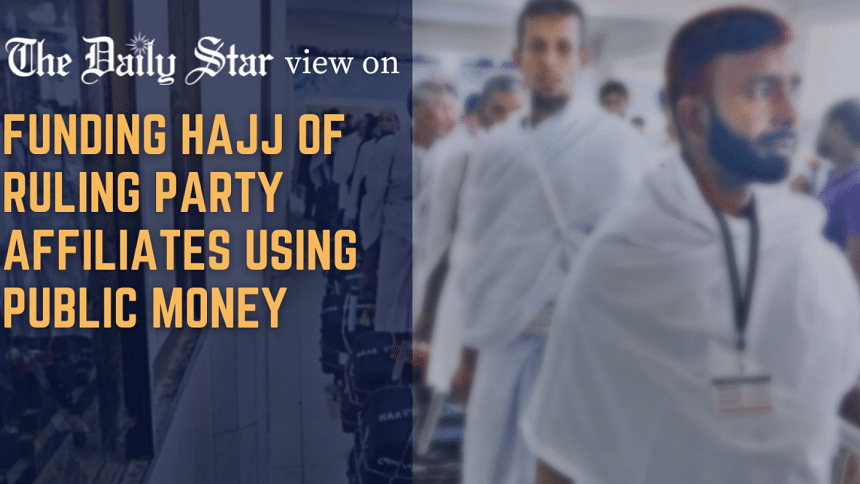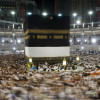Why use public money to fund hajj for ruling party allies?

We are baffled by the allotment of the government's hajj funds this year. We understand that the government carries the expense of a certain number of hajj pilgrims every year – and the number of pilgrims receiving this advantage is 254 this year (out of a total of 57,585 Bangladeshis allowed to enter Saudi Arabia in 2022 to perform hajj). The issue, as a report by this daily has pointed out, is the relatively large number of Awami League leaders, activists, and allies whose hajj will be funded by the government, using taxpayers' money. Tk 11.33 crore will reportedly be spent on sponsoring the pilgrimages, at a time when the economy is under severe stress and the government itself has advised practising austerity, including restricting foreign trips for its officials.
Out of the 254 people selected for the publicly-funded hajj this year, more than 50 percent are reportedly ruling party leaders, their relatives, and those belonging to like-minded political parties. Now, the question is, what are the criteria for selecting the beneficiaries for this fund?
We understand that the hajj, one of the five sacred pillars of Islam, is obligatory to be performed at least once in a lifetime by every adult Muslim if s/he is physically, psychologically and financially able to do so. However, Islam does also allow for any solvent Muslim to finance another Muslim who does not have the financial ability to perform the pilgrimage.
Given the guidelines in the scriptures, we want to know the government's justification for choosing to spend taxpayers' money to fund pilgrimages of such a high number of ruling party members and allies. Are we to believe that these people are financially insolvent? Of all those in the country who cannot afford hajj, are the 254 chosen really the most deserving candidates?
We want to remind the government that the money it is spending is not its own, but belongs to the people of this country. It owes it to the people to provide a transparent account of why and on whom their money is being spent, and why they are not eligible to receive the benefits themselves. If the government must subsidise such pilgrimages, we urge it to come up with eligibility criteria and a transparent selection process. Such a sacred ritual as hajj should not be mired in controversies and corruption.

 For all latest news, follow The Daily Star's Google News channel.
For all latest news, follow The Daily Star's Google News channel. 








Comments